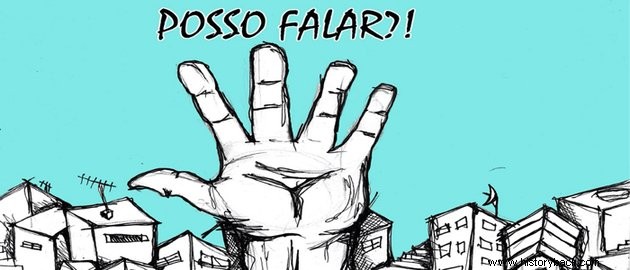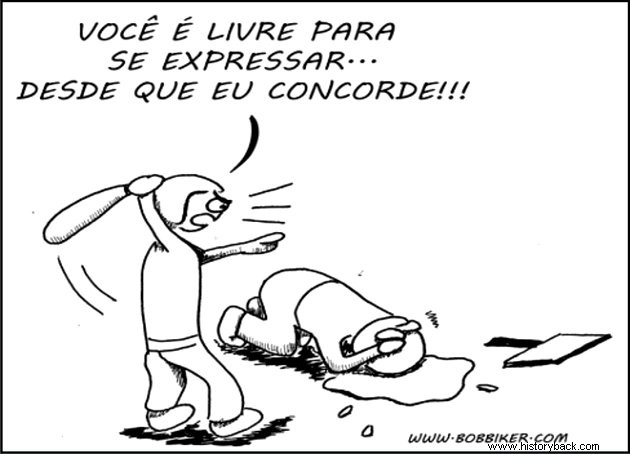Freedom of Expression it is the right that allows people to express their opinions without fear of reprisals. Likewise, it authorizes the information to be received by different means, independently and without censorship.
In other words, it means the right to express a personal opinion or that of a group, always with respect and backed by the veracity of information.
This right is guaranteed by the Universal Declaration of Human Rights.

The relationship between the media and freedom of expression is fundamental, as it brings together the means that expand the possibilities of the most varied manifestations such as writing and plastic expression.
The right to express oneself does not indicate that there is no imposition of ethical and moral limits. Thus, slander is not allowed, as well as acts of injury, because in this way there are rights that would no longer be preserved.
The preservation of the rights of expression must be ensured in any means of communication, including the Internet.
Informality should not mean total freedom to say what you want and offend people, causing moral damage.
See also:Human RightsFreedom of Expression and Politics
Restricting the circulation of ideas and prohibiting freedom of expression is a right taken away from people in totalitarian regimes.
The exchange of ideas, discussions and dialogue encourage society to change. In addition, freedom of expression limits the abuse of power. In this way, authoritarian regimes are the first to censor the media and monitor places where ideas are produced, such as universities and schools.
The Universal Declaration of Human Rights contemplates the right to freedom of expression, considering that it is a fundamental part of democracy.
Freedom of expression, historically, arises with political liberalism.
See also:Greatest Dictators in HistoryFreedom of Expression in Brazil

In Brazil, freedom of expression was contemplated in the first three constitutions until the 1937 Constitution was granted. At that time, the period of censorship began with Getúlio Vargas.
However, the following constitution, that of 1946, once again reinforces the rights and individual freedom of citizens.
In the 1967 Constitution, democracy once again lost its place to authoritarianism and the centralization of power initiated with the 1964 coup.
Media censorship is one of the measures included in AI 5 - Institutional Act No. 5 enacted in 1968.
Finally, in the 1988 Constitution, the right to freedom of expression was reinstated. It is at that time, after the end of the dictatorship, that censorship was banned, as can be read in paragraph 2 of article 220:
See also:Brazilian ConstitutionsQuotes about Freedom of Expression
- I may not agree with any of the words you say, but I will defend to the death your right to say them. (Back)
- I know that there is only one freedom:that of thought. (Antoine de Saint-Exupéry)
- People like the ideal of free speech until the moment they start hearing what they don't want to be said about them. (Augusto Branco)
- In our country, we have these three indescribable precious things:freedom of expression, freedom of conscience and the prudence to never practice any of them. (Mark Twain)
Continue your search:
- Liberalism
- Democracy in Brazil
- Military Dictatorship in Brazil (1964-1985)
- What is dictatorship?
- Sociology at Enem:what to study
